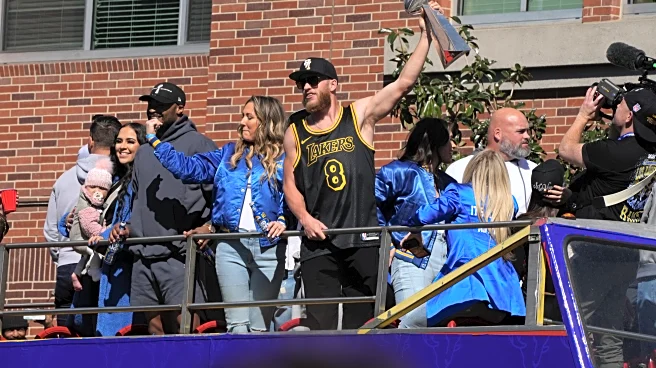Rapid Read • 8 min read
The Voting Rights Act, signed into law 60 years ago by President Lyndon Johnson, is facing significant challenges as its core provisions are being eroded. The Act was initially designed to protect voting rights, particularly for Black voters, and prevent suppression efforts. However, since a 2013 Supreme Court decision, which removed the requirement for certain states to obtain federal approval before changing election laws, stricter voting laws have been implemented in several states. The Supreme Court is set to hear cases that could further weaken the Act, including one that may limit the ability of private individuals and organizations to file voting rights challenges. This comes amid a shift in focus by the Justice Department under President Trump, which has altered its election-related priorities.
AD
The erosion of the Voting Rights Act has significant implications for U.S. democracy, particularly affecting minority communities. The Act's weakening could lead to increased voter suppression and unequal access to voting rights across states. The Supreme Court's upcoming decisions could redefine the legal landscape for voting rights, potentially limiting the ability of private entities to challenge violations. This shift could disproportionately impact communities of color, as the Justice Department's focus has moved away from protecting these groups. The broader impact includes potential changes in political representation and legislative priorities, as seen in the case of Native American tribes in North Dakota who successfully challenged districting that limited their electoral influence.
The Supreme Court's decisions on these cases will be pivotal in determining the future of the Voting Rights Act. If the Court rules against the ability of private individuals and organizations to file challenges, it could significantly reduce the enforcement of voting rights protections. Additionally, the Court's decision on the creation of majority-minority districts could alter the political landscape, affecting representation for minority communities. The Justice Department's shift in priorities and the lack of federal legislation to protect voting rights further complicate the situation, leaving the future of voting rights protections uncertain.
The potential weakening of the Voting Rights Act raises ethical and legal concerns about the protection of fundamental democratic rights. The shift in focus by the Justice Department and the Supreme Court's upcoming decisions could lead to long-term changes in how voting rights are enforced and protected. This situation highlights the ongoing struggle for equal voting rights and the importance of legal and political advocacy in maintaining democratic principles.
AD
More Stories You Might Enjoy












